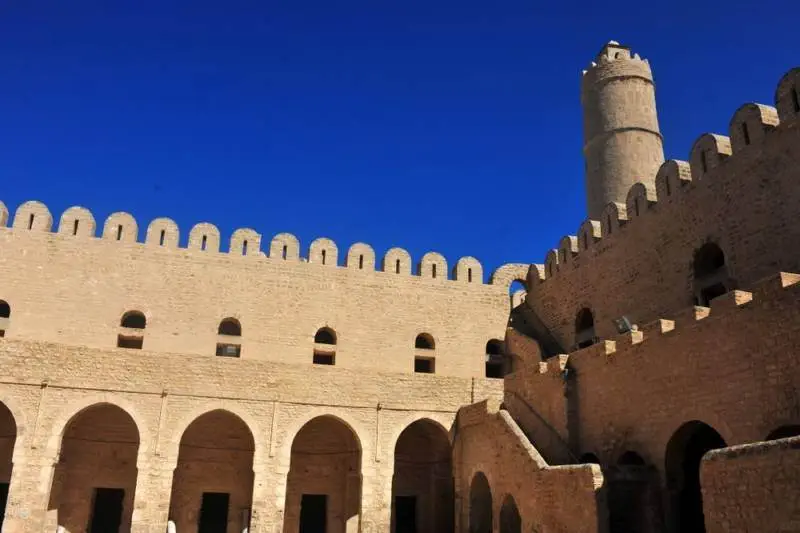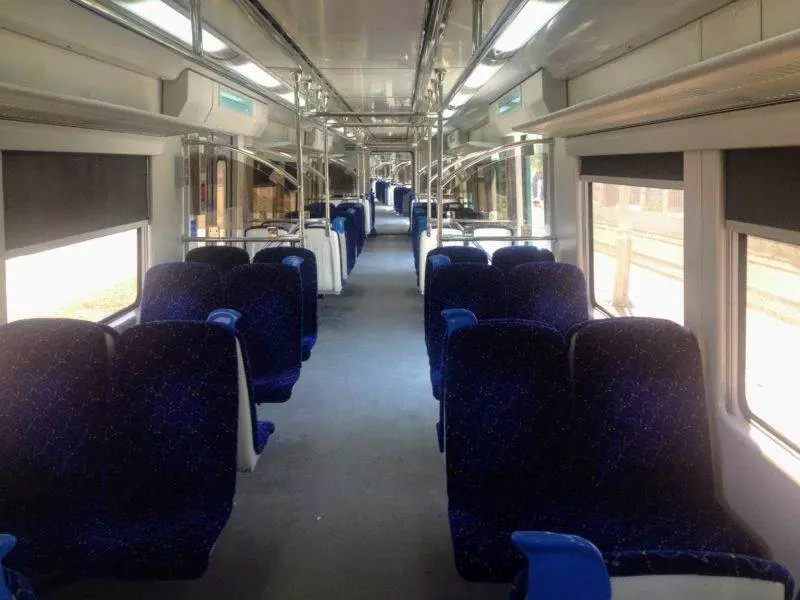Table of Contents
“Tunisia? Where’s that?”, you might be asking.
You might recognize it as a Northern African country from your Where In The World Is Carmen Sandiego? days, or you might be left baffled as to why anyone would want to visit the Sahara. In truth, the coastal city of Tunis and much of the touristy areas don’t feel like the deserts at all — geographically it’s close, but there’s lots of green around.
After the two recent (and tragic) attacks in 2015, you might rightfully be wondering if it’s safe to travel there. Actually, I find this question rather hilarious, especially from Americans — a country with plenty more violence that tourists are likely to see. Yes, the two bombings were tragic, and have decimated the tourist trade over the fear, uncertainty, and doubt.
It’s when countries are struggling, however, that they most need the uptick in tourist trade.

Tunisia makes for a great introduction to the Arab world. The Islamic faith is present without being overbearing, and requires no special arrangements to arrive (the visa on arrival is both free and available to plenty of different nationalities). Being a predominately Muslim country means you give up — and get — a number of unexpected things.
Things you give up when coming to Tunisia
1. Well-known franchises and products
While you can buy a Coke like most anywhere else in the civilized world, don’t expect to find your favorite brand of potato chips (though Mad Chips are fine fare, as junk food goes). You won’t find many recognizable Western chains, either — time to live a little! If it looks like a mini supermarket or has a breadbox outside, it’ll be fine.
2. English in most places (but keep reading!)
With apologies to Anglophones, English is a distant third (maybe fourth) behind the tag team of Arabic and French. Most locals are bilingual, some are trilingual, but don’t expect to find much English around restaurants. During the week we enjoyed Tunisia, I probably spoke more French than I spoke in a week-plus traveling around France (which proved how little French I actually knew, in any case…)
The good news? English and French are both Romantic languages, and have enough in common that you can usually figure it out. What’s not similar looking is intuitive enough based on context and icons.
3. People catering to your every need
This might be different if you’re in the five-star hotel demographic, naturally, but the locals aren’t likely to bend over backwards to help. That being said, locals know how important tourists can be to their economy, and may stop what they’re doing to see what’s going on.
4. Rip offs and touts
A hard thing to give up, right? For the most part, people are happy enough to leave you alone. The (very) few times we were approached to were by shop owners or by an occasional taxi driver when we looked lost. Even the camel ride giver in El Jem only made a half-hearted effort — you may come across some, but nowhere near as many as we did in Thailand.
5. Alcohol
Unlike other Muslim countries, alcohol isn’t strictly prohibited by law in Tunisia. Non-alcoholic beers and wines (which prominently display their 0,0% alcohol content) are in most larger supermarkets, and some restaurants will serve a small (250–330 ml) can of light lagers with alcohol. There’s no confusing these with a good German or Belgian beer, however, and getting drunk is likely to be an expensive proposition
But don’t you have to dress all modest and stuff if you’re a woman? Not as much as you think. The women we saw on the sidewalks had a wide variety of outfits, including some I thought too scandalous for this part of the world. Bare shoulders seemed OK, but there’s very little cleavage and almost no midriffs on display. Pack conservatively to avoid attracting unwanted attention, and calibrate once you arrive.
Things you get when traveling in Tunisia
1. Drinkable tap water
Bottled water is overrated — get one bottle, drink it, and fill it anywhere. Thank the Islamic faith for regarding clean water as a blessing from Allah. Being drinkable from the tap isn’t a given in every Arab country, but it’s fine here.
2. Cheap and excellent French staples
I wish I had gotten more pictures of the scene here. Whether you’re in the mood for pain (bread) or a coffee at a café, the French influence is everywhere. Pain and sachet (a bag) are found for 0.25–0.3 dinar (250–300 millim = 0.25–0.3 dinars, or about 15 cents). Café’s frequently offer shisha (flavored tobacco) — it’s not for everyone, but it’s a fine substitute for a bar and easy enough even if you’re not a tobacco smoker.
3. Fast food worth eating
Once again, I wish I had gotten more pictures of the food. Much like in Egypt, the sandwiches and plat (a full meal on a plate) are cheap and made to order. Say ‘oui’ to mayo and salad, and ‘un peu’ (a little) to the harissa (a spicy red paste). Expect to pay between 2–4 dinars (about $1–2 USD, at 2 dinars to the dollar), and don’t be surprised to find French fries inside!
A number of sit-down restaurants are around touristy areas, with prices ranging from 6 dinars for a fine pizza to about 20 dinars for some seafood dishes.
4. Cheap public transportation

A card guaranteeing you train travel across the country for a week costs a mere 40 dinars for first-class seats all the way. (Protip: the Classe Confort pass, or a special sub-section of First-class, isn’t worth the extra 20 dinars since it’s only marginally better and not available on all trains.) A taxi flagfall starts at 0.45 dinar, though note there’s a 50% surcharge from 9pm-5am. Tram tickets and the TGM train line (the modern train line that connects Tunis to Carthage) are available for pocket change, while louage (vans) are common throughout the country.
5. Exquisite and almost completely untouristed sites
Whether you’re in the mood for a Roman Coliseum with few tourists or some unparalleled mosaics, the sites are incredibly well-preserved. The locals were preserving the relics and ancient excavations in some fashion since the mid-19th century.
Did I mention murals?
And a beach down the coast, of course.
I’m rarely a cheerleader for an entire country (and in case you’re wondering, they haven’t paid me to write this post), but Tunisia was one of the few countries we both could’ve happily traveled around for another week.


